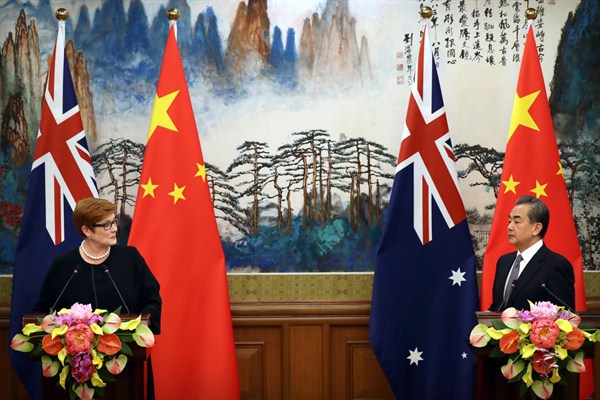Australian Prime Minister Scott Morrison has adopted a noticeably softer tone toward China since taking office in August, in contrast to his predecessor, Malcolm Turnbull. The relationship has improved considerably, with Foreign Minister Marise Payne traveling to China in November, the first such visit by an Australian foreign minister in over two years. But according to Simone van Nieuwenhuizen, a researcher at the University of Technology Sydney’s Australia-China Relations Institute, the Australian government will still have to reckon with the challenges posed by Chinese influence operations and China’s increasing investment in Pacific island nations, where Australia has historically enjoyed a powerful position. In an interview with WPR, she discusses the Morrison government’s efforts to bring the China-Australia relationship out of the diplomatic chill of the Turnbull years.
World Politics Review: How would you characterize Australia’s approach to China under former Prime Minister Malcolm Turnbull, and what led to the recent diplomatic chill?
Simone van Nieuwenhuizen: There is some debate about this in Australia. Some have characterized the Turnbull government’s China policy as one that deliberately and unnecessarily antagonized the Chinese government by singling it out as a potential threat. The most prominent example was Turnbull’s use of the phrase “the Australian people stand up” when he introduced foreign interference legislation in Parliament in December 2017. This was a reference to a likely apocryphal quote from Mao Zedong in 1949, when he declared the establishment of the People’s Republic of China. This kind of rhetoric certainly didn’t help the relationship.

